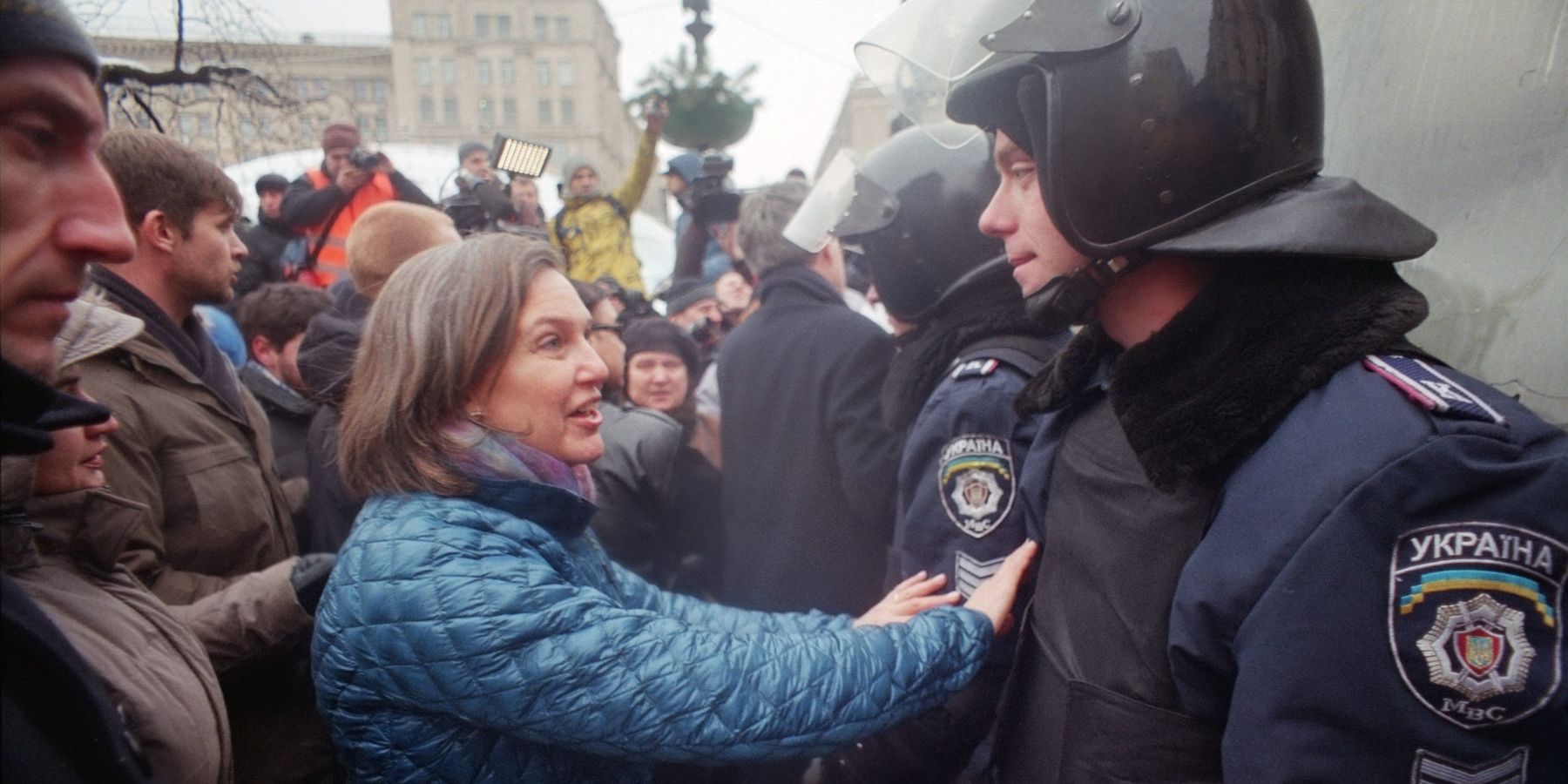Victoria Nuland, a career foreign service officer who served in prominent roles in the State Department under Presidents Obama and Biden and represented the U.S. at NATO under George W. Bush, will be retiring, according to a statement today from Secretary of State Antony Blinken.
Nuland was a combative liberal hawk during her time in government, and she was consistently one of the most aggressive proponents of U.S. backing for Ukraine and NATO expansion. Her career sometimes exemplified the heedless and arrogant foreign policy worldview that she championed.
She was the Principal Deputy National Security Advisor to then-Vice President Dick Cheney during the first two years of the Iraq war, and then served as U.S. NATO ambassador in Brussels during Bush’s second term. Nuland was an early cheerleader for Ukrainian membership in the alliance. She reportedly advised the Ukrainian government at the time to launch an information campaign to “dispel the image of NATO as a ‘four-letter word.’”
As the U.S. representative at NATO at the 2008 Bucharest summit, she pressed allies to grant Membership Action Plans (MAPs) to Ukraine and Georgia. When the German and French governments balked at that idea, she was involved in the blunder in which the alliance promised that Ukraine and Georgia would one day be admitted to NATO. The promise at Bucharest contributed to the August war later that year between Russia and Georgia, and it laid the foundation for the later tensions between Russia and Ukraine.
In her role as Assistant Secretary of State for Europe under Obama, Nuland was involved in meddling in Ukrainian affairs during the Maidan protests. She was captured in news photographs during those demonstrations in Kyiv handing sandwiches to the protesters who later helped oust the elected Yanukovych government.
The leaked recording of her call to the U.S. ambassador of Ukraine at the time in which she infamously blurted, “f–ck the EU,” reconfirmed her reputation as an interventionist. Keith Gessen wrote about it several years later: “What was remarkable about the episode was the utter confidence with which Nuland seemed to speak for the United States and its policy. From the start of his administration, President Barack Obama had tried to lower tensions with Russia and refocus American attention on a rising China; he had made clear he wanted no part in the problems of the post-Soviet periphery. Yet in the middle of the uprising in Kiev, there was Nuland, encouraging protesters and insulting European allies.”
As part of the Biden administration, Nuland has once again been the vocal Russia hawk everyone has expected. In recent months, she had been serving in an acting capacity as Deputy Secretary of State following Wendy Sherman’s retirement, and she was being considered to fill the vacancy permanently, but the job ended up going to Kurt Campbell.
A favorite of Russia hawks, Nuland often rubbed her European counterparts the wrong way with her lack of diplomatic tact. As one European official put it years ago, “She doesn’t engage like most diplomats. She comes off as rather ideological.” It is a measure of how little diplomatic skills are prized in U.S. foreign policy that Nuland flourished for such a long time in Washington.- Thanks to Biden, the War Party is back ›
- Uber Russia-hawk Victoria Nuland rises to acting deputy secretary of state ›
- Nuland fuels theory that Western powers killed 2022 peace deal | Responsible Statecraft ›
- Nuland & Maddow back at the red string conspiracy board | Responsible Statecraft ›
















